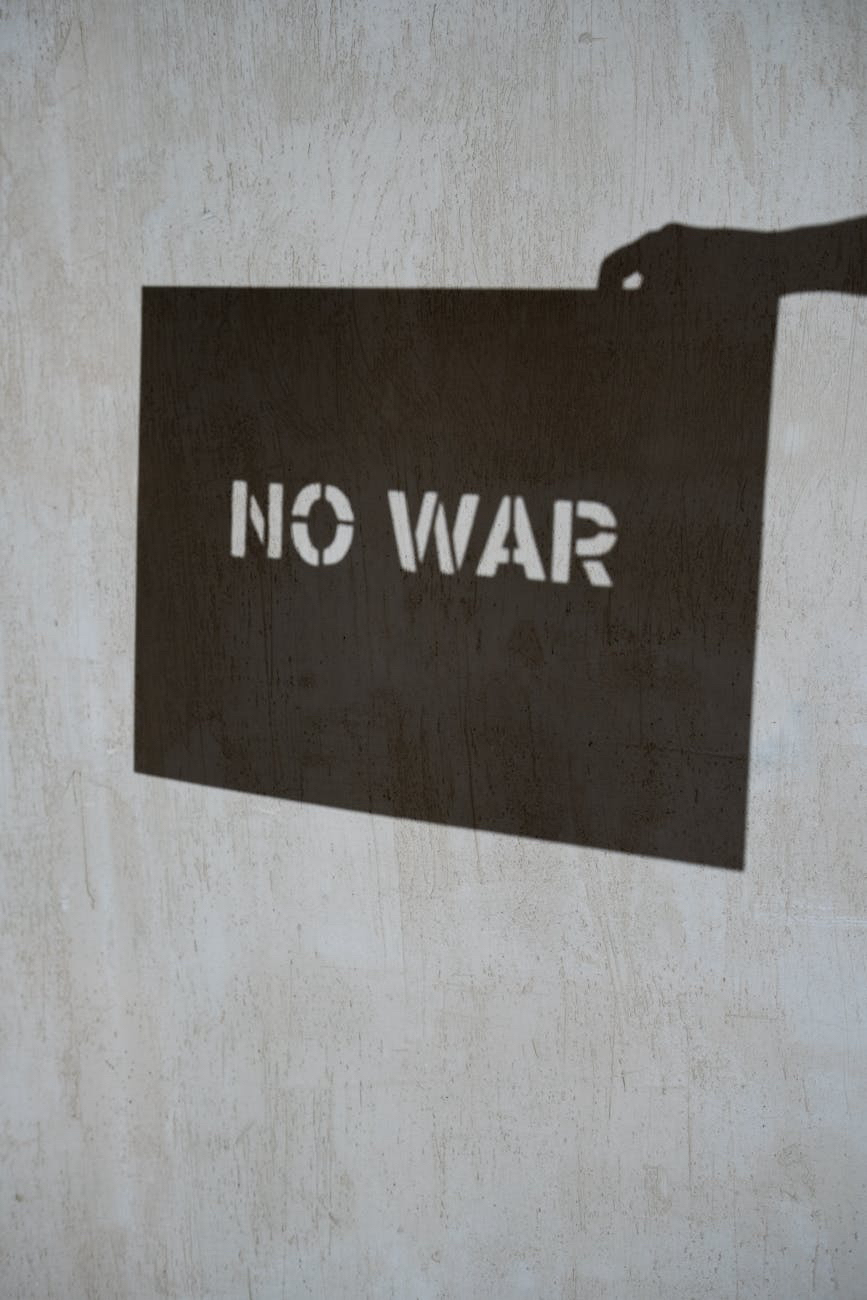By Shannon Bussnick, LSW
In the midst of global unrest and the harsh realities of conflict, the importance of intentional acts of kindness and personal authenticity has never been more apparent.

Disclaimer: I am not an expert on government and mitigating acts of war, these ideas are shared for inspiration and to spark meaningful discussions. Join the conversation in the comments.
While we relish the simple pleasures and personal rituals of our daily lives, such as enjoying a perfectly-peeled clementine or the refreshing first sip from a clean glass of water, these moments deeply connect us to a broader, more urgent call for peace and understanding. They compel us to advocate for the casualties of war—the innocent lives lost and those ensnared in a relentless cycle of violent retaliation.
This is possible if we’re open to seeing the connection and accepting our personal responsibility in promoting peace.
This idea of ‘connection,’ where something smaller contributes to something larger, resonates with influential figures like Elon Musk, who emphasizes the role of ‘conspicuous acts of kindness’ in mitigating the horrors of war. Yes, kindness—a long-term adhesive rather than a temporary stitch.
Everyday Rituals and Conspicuous Kindness
Life’s simple offerings do more than nourish our minds and bodies—they enrich our souls and provide us space to reflect. Each small act of mindfulness, whether it’s taking a moment to breathe before a meal or expressing gratitude for our loved ones, is a step toward greater self-awareness and peace.
These practices are foundational for promoting global peace, reminding us that understanding ourselves—by healing personal traumas and inner conflicts—can lead us to understand others more deeply, leading with kindness and compassion. And in understanding how the social determinants of health can impact one’s beliefs and actions in how they approach conflict.
So, what’s the connection between our everyday rituals and the dynamics of war?
Elon Musk, a prominent voice in both technology and global discourse, suggests that ‘conspicuous acts of kindness’ could play a pivotal role in addressing and potentially alleviating contemporary conflicts.
Hobbes, Rousseau, and the Nature of Humankind
The philosophical debates between Thomas Hobbes and Jean-Jacques Rousseau provide a historical backdrop to our understanding of human nature and its impact on societal conflict and war. Hobbes described human life without political order as “solitary, poor, nasty, brutish, and short,” suggesting that our natural state leads to conflict unless governed by a strong authoritative presence. Rousseau countered, proposing that humans are inherently good but become corrupted by societal developments such as private property and economic inequality.
These contrasting views raise critical questions about the role of leadership in fostering a peaceful society. If Hobbes is correct, then strong leadership is essential to manage our violent natures; if Rousseau is correct, then social and economic reforms are necessary to restore our inherent goodness. Both philosophies underscore the importance of intentional governance and the dangers of leaving societal conflicts unchecked.
The Complexity of Human Nature and Conflicts
Conflicts on a global level are natural due to the complexity of human nature. Such inherent differences among us make conflicts inevitable. However, the traditional methods of addressing these conflicts through violence and aggression are not viable for sustainable peace.

We need to universally shift how we approach conflicts—emphasizing dialogue, understanding, and proactive kindness. We must find ways to enhance the greater good, where all benefit, even if it requires those with much power to relinquish some of it for our collective betterment. This takes courage, selflessness, and hope; recognizing that even the most powerful do not possess the right answers every time. No single solution applies universally, so it’s time to move beyond that outdated belief system.
The Role of Leadership in Promoting Peace
While individual actions are foundational, we recognize that substantial changes often require leadership and governance. It is imperative that our leaders leverage their power responsibly, acting as forces for positive change to ensure the safety of people and the protection of innocent bystanders. This is not merely an opportunity but a profound responsibility to utilize authority as a tool for maintaining peace and harmony on a global scale.
Conclusion: A Unified Step Towards Peace
The synthesis of life’s simple pleasures and Musk’s perspective on kindness in conflict resolution invites us to view every small, personal act as part of a larger effort toward peace and world sustainability.

In laying aside the ‘who’ of ego and embracing the ‘we’ of collective humanity, we open doors to understanding and reciprocal cooperation that can lead to the eradication of war. Let us take inspiration from both the simplicity of our privileged morning coffee and the complexity of global diplomacy to forge a path toward a world where conflicts are resolved not on battlefields, but across tables of mutual respect.
Whichever philosophical viewpoint resonates with you—be it Hobbes, Rousseau, or another—let us commit to intentionally reclaiming our original state of peace, even if that means claiming it for the very first time. The first step will be the hardest, yet it is the most crucial for achieving lasting peace and harmony. Something must change, and no one, particularly those in power, should be excused from the prerequisites for peace.
References
• Douglass, R. (2019). Hobbes vs Rousseau: are we inherently evil or good? Retrieved from https://iai.tv/articles/hobbes-vs-rousseau-are-we-inherently-evil-or-good-auid-1221
• The Hill. (2023). Elon Musk: Israel can thwart Hamas with acts of kindness. Retrieved from https://thehill.com/policy/international/4304954-elon-musk-israel-thwart-hamas-with-acts-of-kindness

Leave a comment